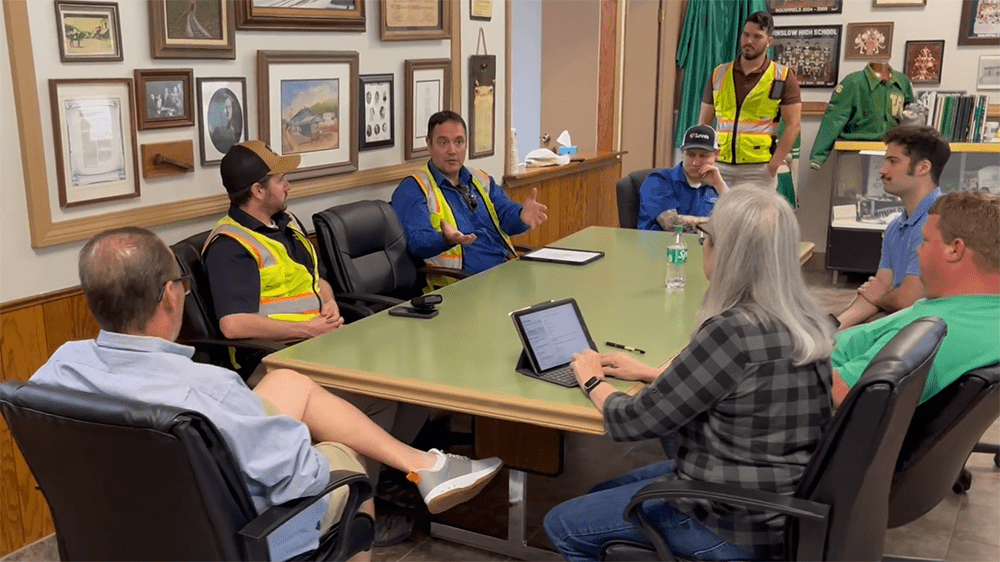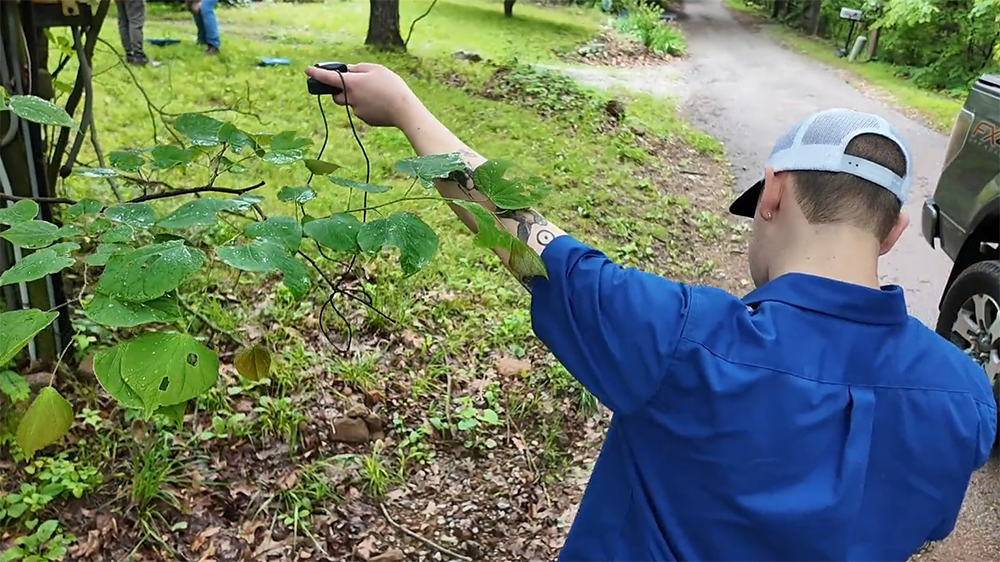Winslow, Arkansas, like many rural communities, needed upgrades to its water system. A year and a half ago, as Winslow sought funding, Mayor Randy Jarnagan realized they needed a better understanding of their system. Discussions with Community Infrastructure’s Cherub Alford and Brad Jarrett from Communities Unlimited (CU) led to a solution.
Alford and Jarrett strategically blended with CU’s Geographic Information Systems (GIS) Team to map Winslow’s water system. Ninety percent of the costs were funded by CU through the USDA-RD Technitrain 2023-24 Grant. This support was crucial for Winslow to address their system issues and plan upcoming projects effectively.
“We’re trying to get money to work on our system. We realized that one of the first things we needed to do was getting this mapping done, so we could find our problems.”
— Mayor Randy Jarnagan, Winslow, AR
CU had also discussed a Pre-Development Engineering (PDE) loan with Winslow, awarding the system their first PDE loan in Arkansas in 2023. Winslow has several projects in various stages of development. Since rejoining as mayor two years ago, Jarnagan has focused on fixing the water system, addressing leaks, and improving infrastructure.
The GIS mapping project helps with leak detection and other projects by providing detailed maps. This project is particularly important as the knowledge of the system’s layout is mostly in the heads of older personnel like water operator Jerry Duggin, who is about to retire.
The first step in the GIS process involved data collection with Alford supplying the Winslow water system data. The GIS Team then mapped water meter account points before conducting fieldwork.

On May 13, 2024, the GIS Team, including coordinator Don Becker, project manager Trent Neathery, specialists Alex Webb and Harrison Brown, and Infrastructure Special Projects Area Director Griffin Todd, met with Jarnagan and other officials in Winslow. Fieldwork took three days, with Alford joining on May 15.
The GIS Team returned to the Fayetteville office later in the week. Over the next few weeks, they will focus on correcting data errors and drawing water lines on the map they created for the community of Winslow.
Once this process is complete, the GIS Team will exchange draft maps with the City of Winslow to ensure accuracy. After verification, they will provide finalized maps using ArcGIS Apps. The City of Winslow will receive both a digitized and a printed map of their water system.
Operator Jake Bentley emphasized the long-term benefits of GIS mapping, especially with the switch to radio-read meters, which reduces the need for manual checks. This mapping is critical for knowing the locations of meters, valves, and hydrants.
“Even our secretaries, they'll look at the map and they’ll have an idea where this meter might be. The mayor, and council members, it's beneficial to the whole water department, the whole town.”
— Jake Bentley, Water Operator
Jarnagan highlighted the importance of technology in locating infrastructure and improving field operations.
“Technology is where we’re all headed,” Jarnagan said. “It’s going to help our operators and guys in the field. Hopefully, it will help us in a lot of different ways.”
Alford added that the GIS project simplifies planning and engineering work, allowing for accurate financial estimates and expedited project completion.

“They’re getting a product in their hand that most small towns never dream of getting, and that’s unique about something that Communities Unlimited offers,” Alford said. “It would be unreachable otherwise. They’re excited about everything. The mayor, Ms. Ann (Malkie, city clerk), the whole department wants it to get better. They’re all hands-on. These communities are the ones who are unstoppable. They’re going to do better when they have that fire behind them.”
Bentley shared that working with CU has been a positive experience.
“They care about their jobs,” Bentley said. “They care about trying to take care of water systems.”

